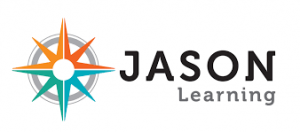The Jason Project
Listen to the Recess! Clip
| Author | Koren Stembridge |
| Air Date | 10/6/2000 |

The Jason Project Transcript
One rainy summer vacation afternoon my father attempted to cheer me up by promising a day-trip to the old city of St. Augustine, Florida. As the daughter of a writer, I was not surprised, but still chagrined, to find that this trip was to include what my dad promised was a “brief” visit to the St. Augustine Historical Society. I may have been only 10 years old, but past experience had taught me that “brief” could not used to modify “Historical Society” in a sentence with my father as the subject!
But as I stepped through the door into the old building’s library, I spotted it. The huge book on the old oak table was dog-eared and a little dirty, but it didn’t matter, because the title beckoned. It was an Atlas of Shipwrecks! And with such an adventure at hand, I didn’t care how long my father took!
We are all adventurers and explorers at heart. I see this time and again as the books about the Titanic, space exploration, and unsolved mysteries fly out the door of my library in the hands of children who can hardly wait to get home to read them.
The Internet, if you think about it, is really on big exploration. A few months ago I caught the tail end of a radio report on the raising of the Hunley, the confederate submarine that, in 1965, was the first sub ever to sink a ship in battle. Thanks to the internet, I wasn’t left thinking: “gee, I really wish I had caught that whole report.” I just logged on, made a quick search, and read the whole story about how author Clive Cussler spent 15 years and nearly $150,000 on his dream to locate the wreck of the Hunley. Mission Accomplished.
Robert Ballard, the explorer who discovered the wreck of the Titanic, has found in the Internet the perfect medium to reach out to the explorer in every child. After his historic find, in 1985, he received thousands of letters from students who wanted to go with him on his next expedition. Soon after, he founded the JASON Project, a year-round scientific expedition designed to connect kids and science.
Through the Internet, and the JASON Project, science classes from grades 4-9 can watch live broadcasts of expeditions to study tubeworms off the coast of the Baja Peninsula, or volcanic activity on the big island of Hawaii, or the exotic wildlife of the Amazon Rainforest. Entire classrooms of students take part in online discussions, and participate in group activities and experiments, trading their data and coordinating their efforts with other classes from around the world. The JASON Project’’s resources for teachers are so well thought-out that they even include a state-by-state listing of how science teachers can integrate the JASON experiments into their state-mandated curriculums.
This is the Internet at its best, using technology to help individuals transcend the limits of geography, physical ability, and means. The JASON Project gives students a terrific gift, the discovery of their own inner-explorer.
Links to these sites and other may be found on the Recess website at www.recess.ufl.edu http://www.jasonproject.org
SHARE
Share this content on these platforms.